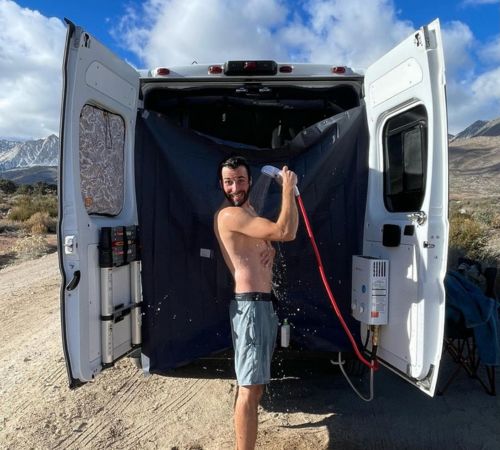Taking the kids camping provides many benefits that the typical weekend trip to the water park may not. While staying in a hotel might be fun, being outdoors offers many psychological and physical benefits that promote an overall well-being – for life.
The list of benefits to getting outdoors and camping with your kids is long but let us take a look at four that just might get you to start planning some camping trips.
Build Self-Esteem
Camping is a great way to build a child’s self-esteem. You can witness the shy child who you would normally always see close to mom at social events begin to beam with pride after doing simple camping activities like gathering firewood or taking a hike.
Jim Taylor, author of the book Your Kids Are Listening: Nine Messages They Need to Hear from You, states that there are better ways to build self-esteem than praising everything they do. He goes on to say that we should help them be competent. After all, competence builds confidence.
Being outdoors gives a child the opportunity to take risks on their own terms. Camping has many opportunities to allow children to solve problems and be tenacious in activities. We need to step back and allow them to take those healthy risks.

Disconnect from Technology
Possibly one of the best things about staying in a National Park or remote National Forest is that there is no internet connection. Our children are exposed to technology every waking hour. Many children in the U.S. already have a digital footprint at birth, and sometimes before birth.
A study done by the American Academy of Pediatrics shows that the average 8-10 year old is on some sort of media 8 hours per day, and teens/adults about 11 hours per day.That means your child is having more time in relationships with a screen than social interaction with other kids. This behaviour is creating health problems in our kids, such as becoming overweight, developing sleep and eating disorders, having shortened attention spans, and general low levels of psychological wellbeing.
Health Benefits
Did you know that just by getting out into a natural setting relieves stress? I think most of us know this. The American Heart Association on Heart.org states that:
Spending time in nature can help relieve stress and anxiety, improve your mood, and boost feelings of happiness and wellbeing. Whatever you call it – forest bathing, ecotherapy, mindfulness in nature, green time or the wilderness cure -- humans evolved in the great outdoors, and your brain benefits from a journey back to nature.
Another interesting fact presented in the article is that our modern life has changed dramatically from the life in the savanna. However, our brains have mostly stayed the same. We still have a deep connection to nature, and you can feel this the moment you step into a wooded trail, or walk along a slow moving stream.
When we ignore this fact, we may suffer from many ailments such as depression, stress, anxiety, and fatigue. This is true for all ages. Spending too much time indoors, and on technology as mentioned above, can also leave us with a lack of creativity and affect personal relationships.
Along with the psychological health benefits are the physical health benefits. It’s easy to say that children are more active when they are outdoors. Children in the campground seem to attract each other and begin exploring things to do together.
Camping can easily allow children to follow the Canadian 24-Hour Movement Guidelines by keeping kids active which in turn allows for a great night’s sleep. Activities such as climbing trees and boulders, hiking, and gathering firewood are all muscle strengthening activities. Plus, active kids are more likely to become active adults.
Respectful of Nature
After you have your campsite set up and the chairs set around the fire, you can almost feel a sense of calm fall around you. Your pace slows to a point where you and your children experience nature through all senses. You begin to hear the calls of the squirrel high up in the tree, scolding you for getting too close to their food storage. You feel the wind and smell the fragrant pine scents. The textures of the tree bark and favourite sleeping bag replace your normal surfaces back home. Things are different and welcoming.

During a camping trip children learn how to respect nature by staying on trails, keeping the campsite clean from trash, and being responsible with the campfire. But they do so by modeling the adults around them. If they see us respecting nature, they too will learn this behaviour. They would rather imitate than be told how to do something.
Where will you take your kids camping first?










